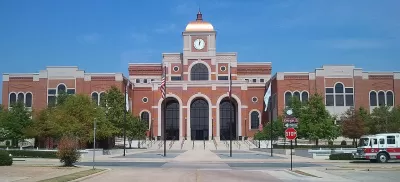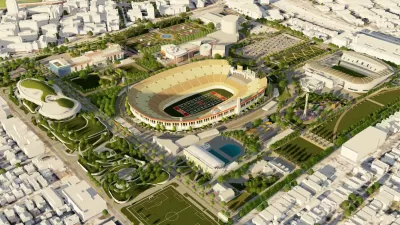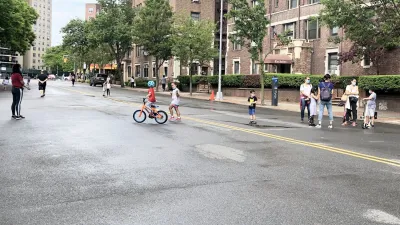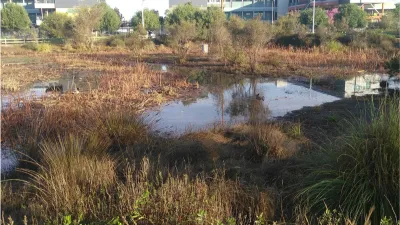Lewisville, Texas, demonstrates how equitable planning and community-driven efforts can transform underserved areas by enhancing park access and promoting social and recreational equity.

The 10-Minute Walk campaign, a nationwide initiative led by the Urban Land Institute, the National Recreation and Park Association, and The Trust for Public Land, aims to ensure all residents live within a 10-minute walk of a park. In Lewisville, Texas, this vision became reality through a study focused on increasing park access in underserved areas like "the Triangle," which faced barriers such as busy roadways and socioeconomic challenges. By leveraging data, mapping, and authentic community engagement, the city developed a plan to address these disparities and foster equity in park access.
Two standout achievements emerged from Lewisville's efforts. The Play Lewisville On Wheels program brought recreation directly to underserved neighborhoods, eliminating barriers such as transportation and cost. Similarly, the creation of Glory Park/Parque La Gloria improved the Triangle neighborhood, providing walking trails, playgrounds, and open spaces while fostering trust and social connections through a community-driven planning process. These initiatives not only enhanced recreational opportunities but also strengthened community bonds and inspired further improvements.
As a result, Lewisville has made significant progress, increasing the percentage of residents living within a 10-minute walk of a park from 60% in 2019 to 83% by 2024, with a goal of 85% by 2025. The success of Lewisville's approach underscores the importance of prioritizing equity, engaging communities authentically, and translating thoughtful plans into tangible actions. By doing so, the city has set a powerful example for advancing equitable access to parks nationwide.
FULL STORY: From Plans to Parks: Learning from Lewisville

Trump Administration Could Effectively End Housing Voucher Program
Federal officials are eyeing major cuts to the Section 8 program that helps millions of low-income households pay rent.

Planetizen Federal Action Tracker
A weekly monitor of how Trump’s orders and actions are impacting planners and planning in America.

Ken Jennings Launches Transit Web Series
The Jeopardy champ wants you to ride public transit.

Washington Legislature Passes Rent Increase Cap
A bill that caps rent increases at 7 percent plus inflation is headed to the governor’s desk.

From Planning to Action: How LA County Is Rethinking Climate Resilience
Chief Sustainability Officer Rita Kampalath outlines the County’s shift from planning to implementation in its climate resilience efforts, emphasizing cross-departmental coordination, updated recovery strategies, and the need for flexible funding.

New Mexico Aging Department Commits to Helping Seniors Age ‘In Place’ and ‘Autonomously’ in New Draft Plan
As New Mexico’s population of seniors continues to grow, the state’s aging department is proposing expanded initiatives to help seniors maintain their autonomy while also supporting family caregivers.
Urban Design for Planners 1: Software Tools
This six-course series explores essential urban design concepts using open source software and equips planners with the tools they need to participate fully in the urban design process.
Planning for Universal Design
Learn the tools for implementing Universal Design in planning regulations.
Heyer Gruel & Associates PA
Ada County Highway District
Institute for Housing and Urban Development Studies (IHS)
City of Grandview
Harvard GSD Executive Education
Toledo-Lucas County Plan Commissions
Salt Lake City
NYU Wagner Graduate School of Public Service





























